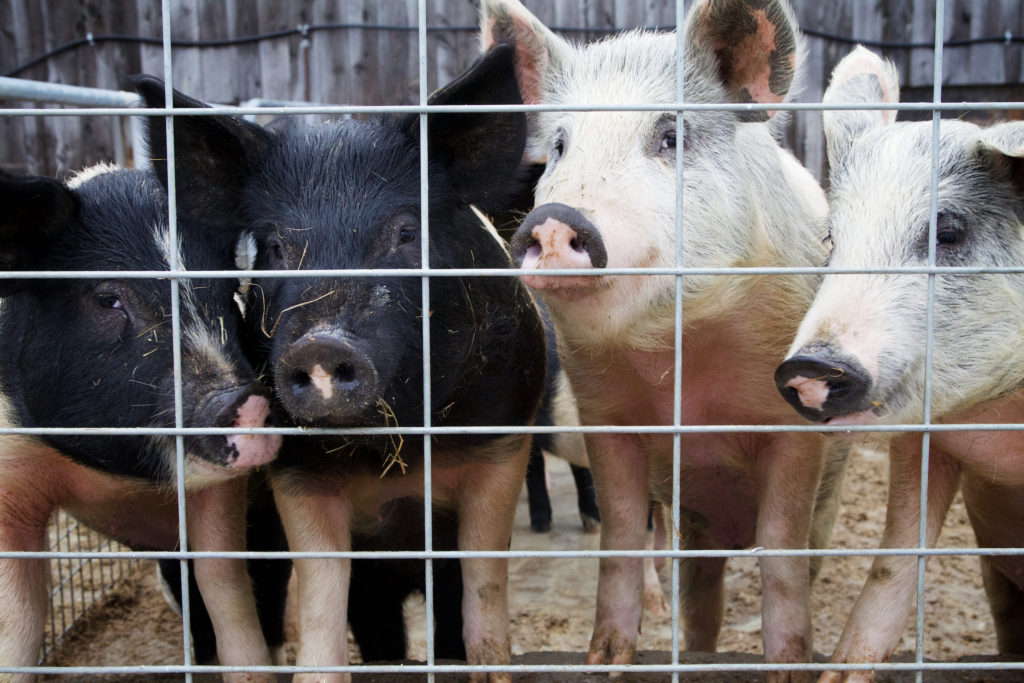Proposed changes to federal pork processing rules could loosen food safety standards
When the Maine legislature approved the state food sovereignty law in 2017, they were told it ran afoul of federal food safety laws when it came to meat and poultry processing.
The original bill allowed municipalities to adopt an ordinance freeing its local food production, processing, consumption and direct producer-to-consumer exchanges from state regulatory requirements. It was soon amended to exclude meat and poultry processing and sales.

Last month, the United States Department of Agriculture — the same federal department that cited safety concerns when it demanded Maine retain regulatory control of its meat and poultry processing and sales — took what could be its final steps that consumer advocates say loosen food safety standards on a national level.
The USDA’s New Swine Slaughter Inspection System reforms were announced in early 2018 and would amend long standing pork slaughterhouse rules regulating processing speeds and onsite inspections.
According to an article online in The Hill, changes are in the final stages of approval by the federal government following more than a year of studies and a public comment period.
These processing “line speeds” were regulated more than a century ago to move at a pace slow enough to allow federal meat inspectors the opportunity to assure the pig carcasas were not diseased or feces covered as they were packaged for sale.
In the 1905 fictional novel “The Jungle,” author Upton Sinclair explored appalling conditions that existed in United States slaughterhouses at the end of the 1800 and early 1900s. The novel caused public outrage, which prompted Congress to pass the Pure Food and Drug Act and the Meat Inspection Act in June 1906 and the Federal Meat Inspection Act of 1906. The former led to the creation of the Food and Drug Administration and the latter mandated mandatory sanitary requirements for the processing of livestock. Both were aimed at making the U.S. food system safer for consumers.
Under the new rules, the regulations created in 1906 would be rolled back, allowing slaughterhouses to greatly increase the line speeds at processing plants.
The New Swine Slaughter Inspection System reforms also reduce the number of government food inspectors working in pork processing plants by 40 percent and replaces them with a smaller number of processing company employees. These employees — who are not required to undergo any additional training — would conduct sorting tasks, like identifying and removing any parts of the carcass that appear unfit for human consumption, that the USDA previously called inspections.
The rules also allow the processing companies to design their own testing programs to measure food safety. By creating their own programs, they no longer would have to meet industry standards, according to the reformed rules.
Similar inspection changes were made in the poultry industry in 2014, and USDA officials say the beef-inspection process could be next.
According to The Wall Street Journal, supporters of these reformed rules, including those who operate large pork processing plants in this country, say they are intended to free up government inspectors while making plants more efficient. But the rules, which could take effect this year, have drawn criticism.
Consumer advocates question whether companies can guarantee the cleanliness of their pork while workers take on some tasks previously reserved for USDA inspectors. Meanwhile, worker-rights groups say speeding up slaughter lines would strain workers whose jobs are already difficult and dangerous.
The Wall Street Journal also reported that opponents of the rule changes, including the United Food and Commercial Workers International Union which represents 30,000 pork-plant workers, claim the USDA’s own studies into the impact of the reforms was flawed, and that the public was denied access to the more than 83,000 comments filed with the USDA on the proposed rules changes. The USDA’s office of inspector general has opened an investigation into the study’s methodology and alleged lack of transparency in releasing its results.
